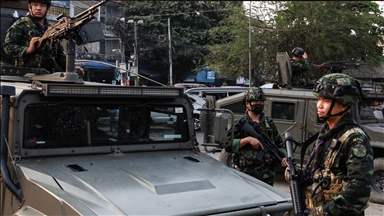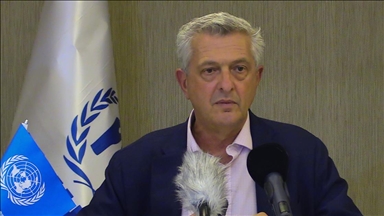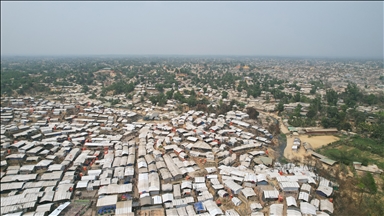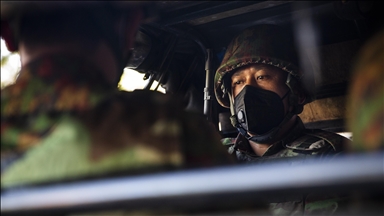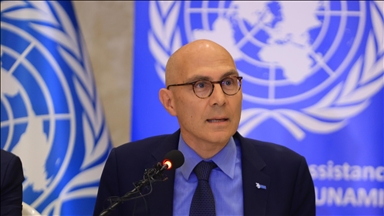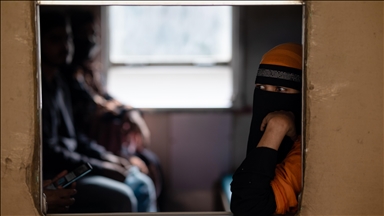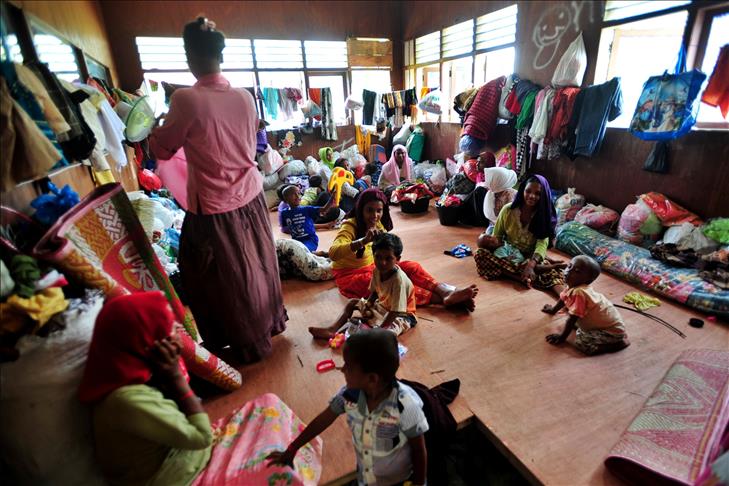
By Max Constant
BANGKOK
Tensions simmered at the opening of a regional meet in Bangkok on the Southeast Asian boat people crisis on Friday, with the United Nations High Commissioner for Refugees asking Myanmar to assume its responsibilities to its Muslim Rohingya population.
“Addressing the causes of migration will require full assumption of responsibility by Myanmar toward all its people,” stated Volker Turk.
“Granting citizenship is the ultimate goal. In the interim, there must be removal of restrictions on basic freedom,” he added.
The Myanmar delegate retorted that “finger-pointing" will not help solve the issue.
Rohingya are denied citizenship by the Myanmar government, despite existing in the country for generations. Around 140,000 of them live in squalid conditions in camps in Arakan State (also known as Rakhine State) in western Myanmar - one of the country's poorest regions. After clashes broke out with local Buddhists in June 2012, they have been routinely persecuted by ultra-nationalists monks, such as Mandalay-based U Wirathu.
The country recently approved a controversial population control law, which activists claim is primarily aimed at ethnic minorities such as the Rohingya.
Brad Adams, the Asia director of Human Rights Watch, has described the nationalist Buddhist organizations behind the law as “activists with a racist, anti-Muslim agenda," with Wirathu appearing to confirm those fears in a May 18 interview with Irrawaddy magazine.
"If the bill is enacted, it could stop the Bengalis [the goverment's word for Rohingya] that call themselves Rohingya, who are trying to seize Rakhine State,” he claimed.
Htin Linn, the special representative for the country's foreign ministry and Myanmar representative at the Bangkok meet, reacted almost immediately to Turks’ remark, saying “finger-pointing and politicizing the issue will take us nowhere”.
“You need to be better informed. You cannot single out my country,” he told Turk. “Some issues are under domestic jurisdiction.”
The regional meeting brought together the five countries directly concerned in the crisis – Bangladesh and Myanmar, countries of origin of the migrants, Thailand, the main transit country, and Malaysia and Indonesia, the destination countries.
Accompanying them were observers from the European Union, the United States, Australia, New Zealand and Switzerland. Representatives of the United Nations High Commission for Refugees, the United Nations Office for Drugs and Crime and the International Organization for Migration were also in attendance.
Opening the meeting, the Thai deputy-prime minister and minister for Foreign affairs, Gen. Tanasak Patimapragorn, said it was convened “in the spirit of international burden sharing.”
“We need to work together to prevent the increase in the irregular migration and to address the root causes of the problem,” he said.
Patimapragorn attempted to justify Thailand's refusal to open temporary shelters to receive boat people despite Malaysia and Indonesia announcing that they would house up to 7,000 migrants on the condition that the international community resettles them in third countries or repatriates them to their country of origin after one year.
“Thai junta chief Prayut Chan-ocha has ordered the launch of a mission to provide humanitarian assistance to the migrants stranded at sea,” he said.
“A floating platform has been deployed with a medical team and an investigation on board,” he added, claiming the floating platforms were just like "onshore ground.”
The main challenge of the one-day meeting will be to produce a mechanism allowing participating countries and international agencies to coordinate their actions on the migrants issue over a long period, with, for instance, regular meetings several times a year.
Anadolu Agency website contains only a portion of the news stories offered to subscribers in the AA News Broadcasting System (HAS), and in summarized form. Please contact us for subscription options.


